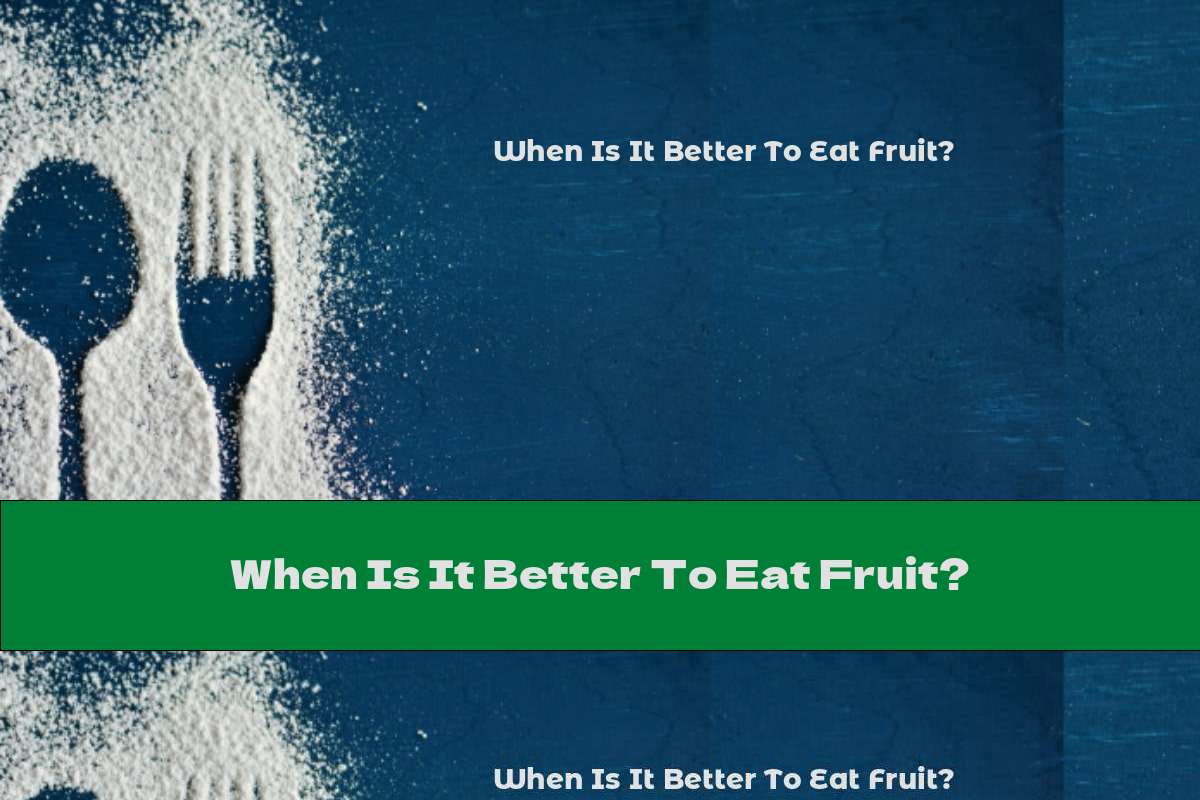When Is It Better To Eat Fruit?
 Author: Alexander Bruni
Time for reading: ~3
minutes
Last Updated:
February 16, 2026
Author: Alexander Bruni
Time for reading: ~3
minutes
Last Updated:
February 16, 2026

Citrus fruits - in the morning, bananas - after evening training and other fruits according to the schedule.
In Stephen King's story "This bus is another world", the main character's mother taught her son: "In the morning an orange is gold, in the evening - lead." American folk wisdom that many nutritionists could subscribe to.
Have you ever wondered why orange juice is a traditional attribute of continental breakfasts, but no waiter would ever offer this drink at dinner? The thing is that most fruits really have their schedule - the time when they saturate the body, prevent diseases, postpone old age and at the same time (oh, wonder!) do not harm the figure. The mode of operation of citrus fruits, for example, from 6 to 12. Due to high acidity, even a few slices in the evening can end in heartburn, indigestion and insomnia.
In the new report of the World Health Organization, a specific figure appears - at least 400 g of fruit (or from 3 to 5 pieces) every day. Ideally, they should be seasonal - this guarantees full harmony of nutritional elements. But at what time do you need to fulfill this vital minimum?
Before or after meals
The average person on the planet eats fruit after a meal. Nevertheless, as the brilliant anthropologist and nutritionist Alan Walker proved in the New York Times: it must be done strictly on an empty stomach. The point is in the peculiarities of digestion: fruits are not digested in the stomach, but stay there for only 15-20 minutes. All vitamins and antioxidants are broken down and absorbed only in the intestines. If apples, plums, peaches and any other fruitsget into an already full stomach, then, under the influence of chemical reactions, they begin to ferment, losing everything valuable and causing a feeling of discomfort (for example, bloating). In this chain, pineapple stands out: it is believed that it burns calories, so it is often used as a dessert on restaurant menus. In fact, you should eat it at the beginning of the meal - in this case, you will significantly facilitate the digestion of the next meal after the fruit .
Another option is to eat fruit between main meals. Dietary fibers give a feeling of satiety, keep appetite under control, allow you to maintain an active metabolism and suppress the desire to eat something more caloric and less useful. " Fruits and berries with small seeds, such as kiwi and strawberries, have excellent satiety properties," says doctor Iris de Luna, a specialist in endocrinology and nutrition at the Quiron Research Clinic in Madrid. - In addition, consuming insoluble fiber helps prevent problems such as colon cancer. And apple and pear (after cleaning the skin) enrich the body with soluble fiber, which helps, if necessary, to slow down digestion."
So, Alan Walker's formula: fruit can be eaten 2 hours after fresh vegetables, 3 hours after a meal without meat, and 4 hours after a meal with meat.
In the morning or after 19:00
Starting the day with a fruit salad means providing the cells with a powerful charge of energy. And all because of local carbohydrates, the gradual consumption of which makes us energetic. Therefore, it is recommended to eat them for breakfast or, at most, after dinner. But the evening is the most inappropriate moment. In the afternoon, the level of physical activity decreases, and fructose, which is not burned in the body, tends to accumulate in the form of fat. In addition, after 19:00 the metabolism slows down a lot, which means that pieces of fruit do not have time to be digested and begin to rot.
Related Articles
- The Power of Food Combinations: Enhancing Nutrition for Better Health
- Understanding Carbs to Sugar Conversion: A Guide to Better Health
- Understanding Carb to Sugar Chart for Better Nutrition and Health
- Navigating All Restaurants for Better Nutrition: Tips and Strategies
- The Ultimate Guide to Food Combining for Better Nutrition
Top Nutrition Articles Today
- . E481: Uses, Benefits, Side Effects, and Safety Regulations
- . Granadilla - Health Benefits
- . Nutrition Trends 2026: Diet Plans, Recipes, and Wellness Tip...
- . The Benefits of Myra E: A Powerful Vitamin E Supplement
- . First Complementary Foods: What And When To Give A Child (wi...
- . The Power of Nori: Health Benefits and Nutritional Value
- . Nutrition Trends for 2026: Superfoods, Recipes, and Balanced...
- . The Nutritional Benefits of Quaker Oats: A Complete Guide
- . The Role of Micronutrients in Chicken: A Comprehensive Guide
- . Carbs to Sugar Conversion Chart: Monitoring Carb and Sugar I...